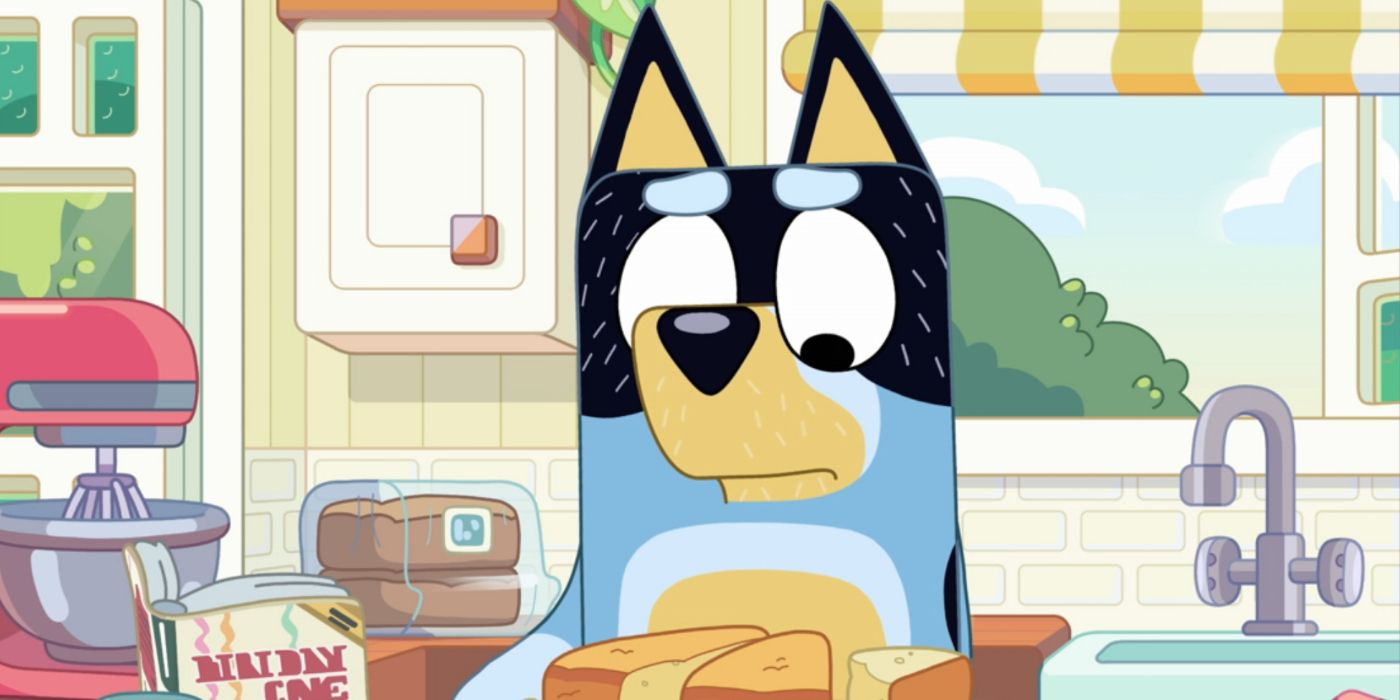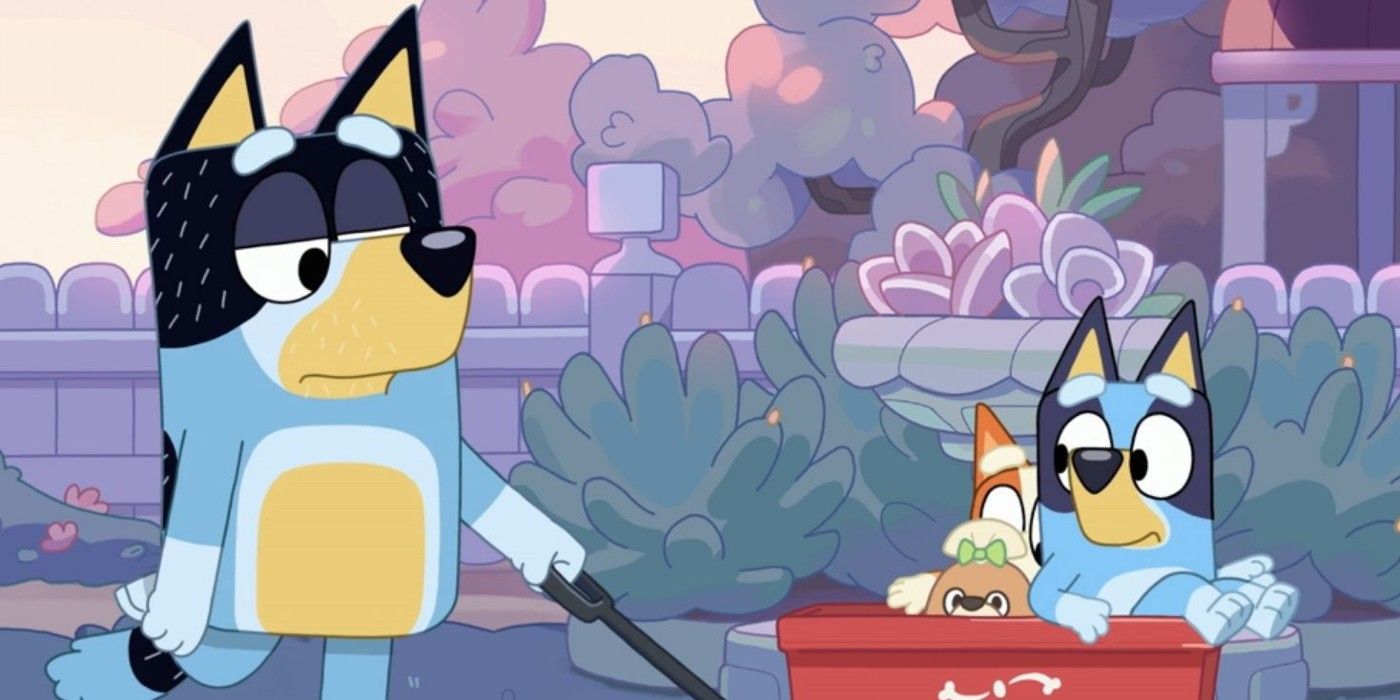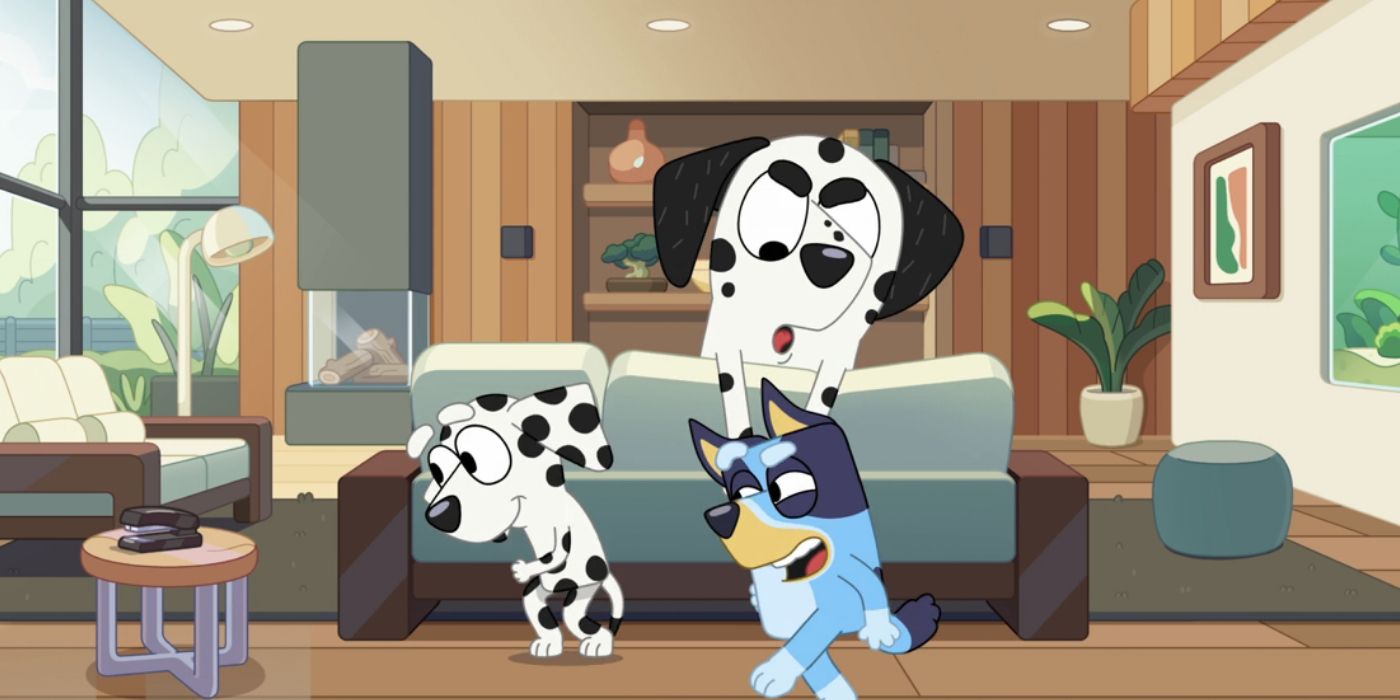The children's animated series Bluey -- currently streaming on Disney+ -- has taken off not just among adults with children, but among those without. For those who happen to have kids, though, there are certain aspects of the show that are often jokingly pointed out as shortcomings. Some of them include disagreeable child characters or dark fan theories, the latter of which is common in children's movies and series alike. The most common complaint, though, focuses on the fathers of Bluey, especially the main character's father: they are too perfect.
Naturally, characters who are too perfect (Mary Sues and Gary Stus) are often off-putting in fiction. The Bluey fathers are rather expert in parenting, which proves to frustrate many fathers who are all too human as compared to the animated canine father figures of the show. However, the show actually takes pains to demonstrate that the role of fathers is not to be perfect. As a matter of fact, the willingness to accept and combat one's shortcomings as a parent is integral to the objectives of the show.
In order to truly understand the objectives of Bluey, one needs to be familiar with the mechanics of poetry. Poems are often pointed and straightforward, but classically and among the members of the so-called "Middle Generation," such as Elizabeth Bishop, poetry had multiple meanings for different perspectives. This wasn't just a case of different interpretations, but it was intentionally seeded. All poems were expected to have at least two or three meanings, two of which were consistently romantic love and religious symbolism. A brilliant example of this is in the poetry of John Donne, whose poetry is described as: "Talking about God when he means sex, and talking about sex when he means God."
Naturally, it seems odd to examine this concept through the lens of a set of cartoon dogs, but the idea of the dual meanings are there, and are already well-established in animated features. For young children, the bright colors are brilliant and entertaining. For older children, the stories are engaging and contain important lessons. For adults, though, the episodes contain important lessons for how to interact with children and foster creative, emotionally sensitive environments. However, it does so in a way that doesn't come across as preachy. Instead, it puts its father figures in difficult situations and has them learn.
A good example of this comes from the Series 2 episode "Octopus." In this episode, one of Bluey's friends wants to play a game with her father, but she keeps correcting her father, and her father refuses to play the game "right." Ultimately, both parties are in the wrong. However, the father in the situation researches aspects of the game and clarifies emotions with his daughter, ultimately arriving at a better version of the game than was initially introduced. Though subtle, this episode's message is straightforward: parents will fail to meet their children where they are. It's up to the parents to fix it, though.
As concerns Bandit Heeler, Bluey's father, there are multiple instances wherein he makes mistakes as a parent. In the Season 1 episode "Teasing," Bandit is shown as being emotionally hurtful to his children. In "Squash," he is mean to his brother and makes Bluey's little sister believe that she will fail because she's younger. In "Yoga Ball," he hurts Bingo repeatedly because he doesn't realize that she needs to be treated more gently than her older sister. Bandit isn't a perfect father in any of these instances; he is, however, willing to learn and correct himself to be a better caretaker for his children, which is all the series truly asks of adults.
At no point does the series expect perfection from the parental figures represented in it. Sometimes, they cause their children to act out. Others, they are hungover and try to entertain their children while nursing themselves back to health. All in all, the characters are willing to learn, though, which is the crux of what the show asks caretakers to do.
Bluey is available to stream on Disney+.



